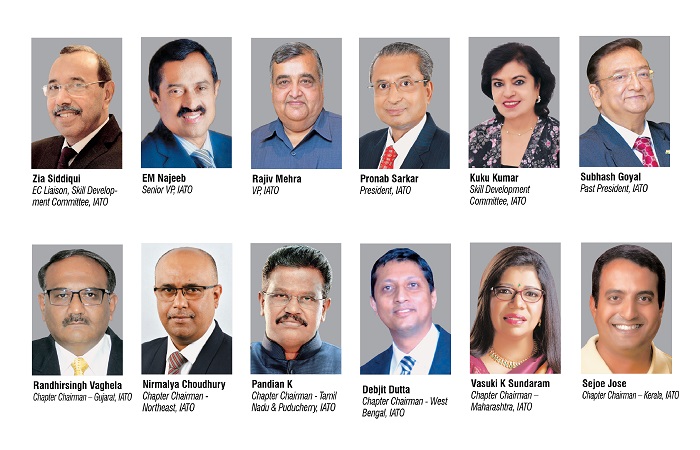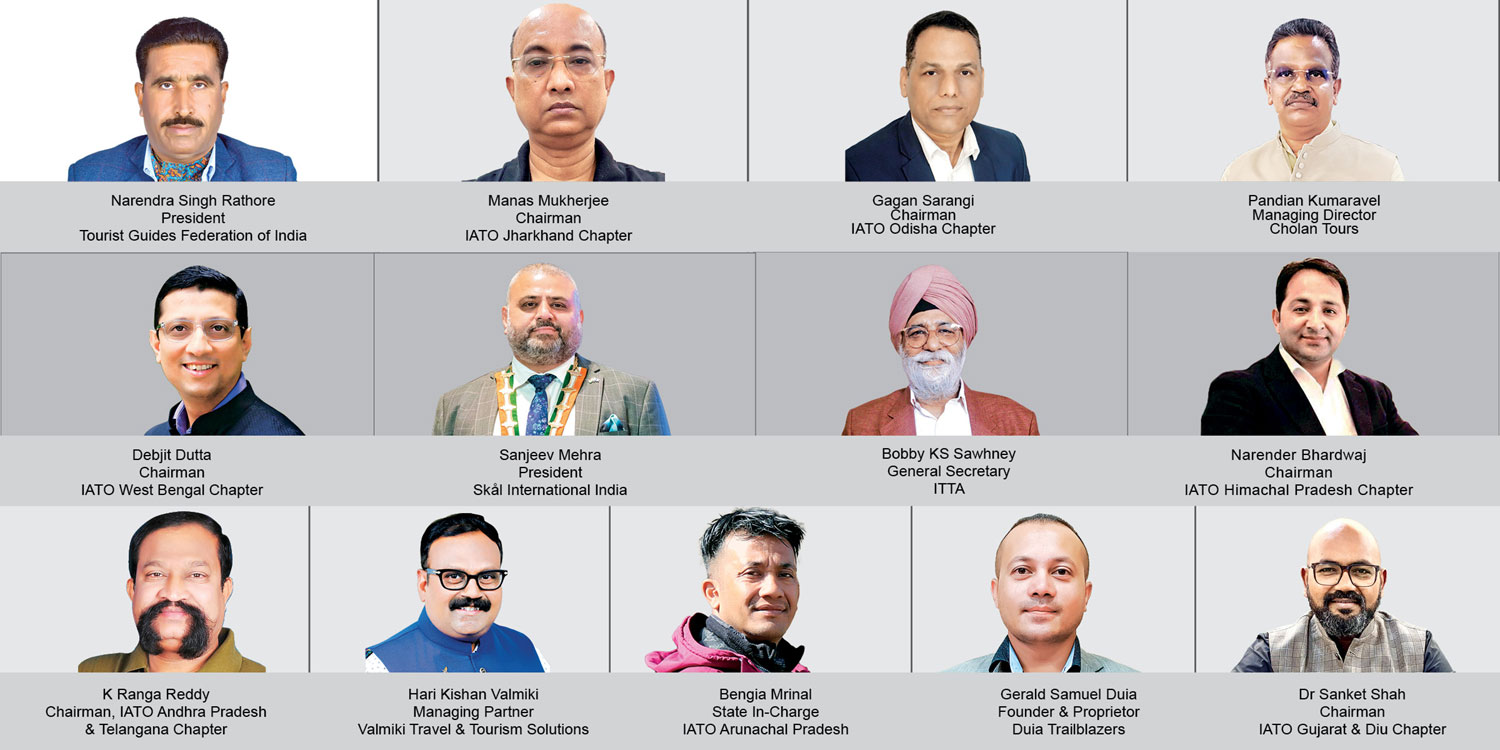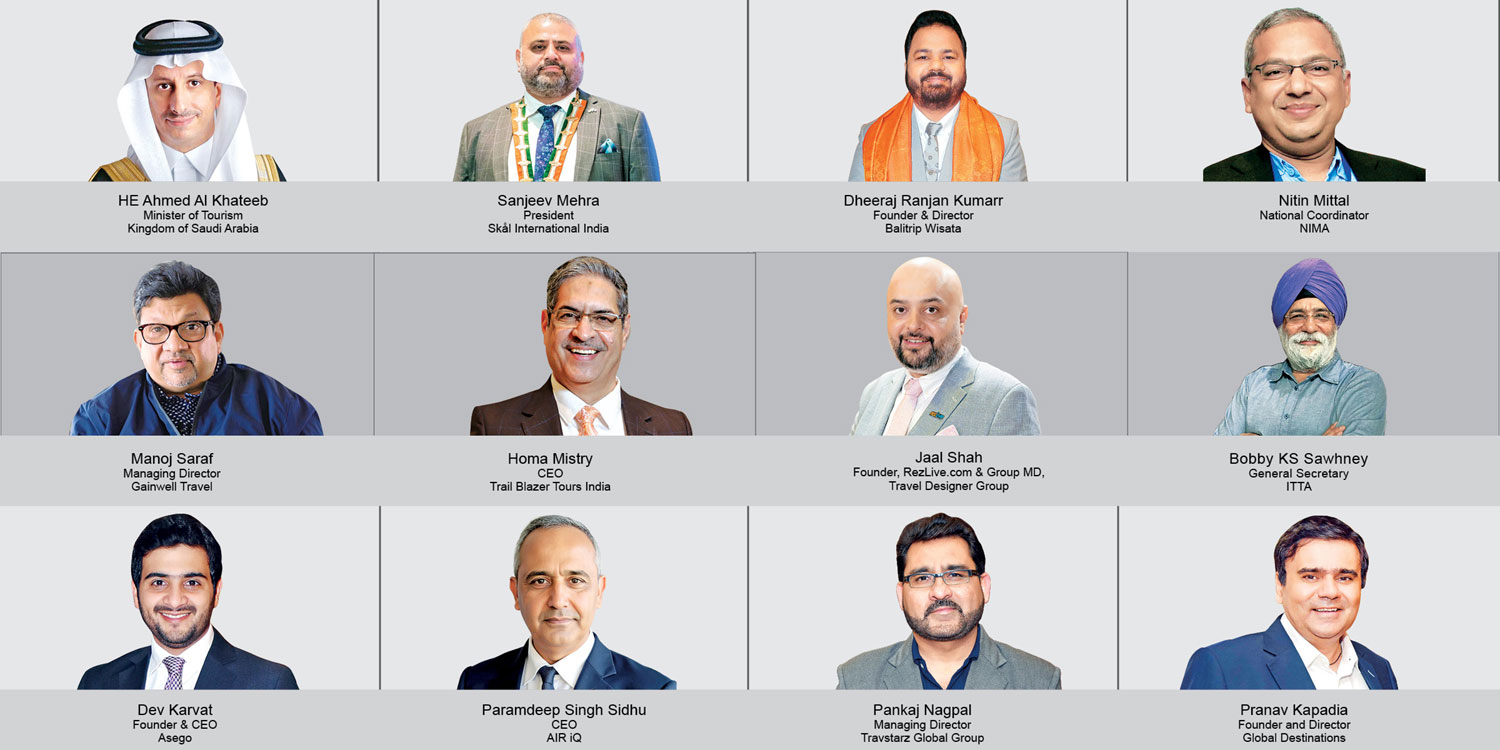Realising the need for skill development in the travel industry today, senior members of IATO share their view on the importance of new-age skills in the use of technology to pave the way for survival of travel companies. Technology alone cannot guarantee success, they feel.
Zia Siddiqui, EC Liaison, Skill Development Committee, IATO
“The future would be challenging for small and medium- sized tour operators when the business module transforms from traditional to digital. Switching to the latest electronic gadgets, designing new websites, or emailing will not be enough; re-engineering the thought process and approach, along with a smart workplace will prove helpful. Therefore, training and skill development may not be an activity of associations, but IATO plans to take it ahead as ‘IATO Mission of Skill Development’. IATO wants to reach to all its members on a pan-India level.”
EM Najeeb, Senior VP, IATO
“Today, visitors’ satisfaction level is enhanced by making information available to them, making their travel easier. Integration of technology will lead to ‘Smart Tourism’ effectiveness. Unlike OTAs, regular travel companies offer to customers human support and guidance. Industry players should also develop outstanding travel consultants and counsellors who can take care of the needs and concerns of the passengers. Technology alone may not fully be able to address all the concerns of travellers as much as effective human interaction can.”
Rajiv Mehra, VP, IATO
“The different tools of skill development for industry leaders and stakeholders are advanced research skills, strong communication skills, flexible organisation skills and enthusiasm for lifelong learning. Some of the other more specific tools for skill development that one can use to simplify workloads are content authoring, video editing and engaging visitors on social media. With technology, e-learning and online assessment tools can help develop skill to automate key aspects of teaching and knowledge sharing. Technology has always been the cause of innovation and invention.”
Pronab Sarkar, President, IATO
“The biggest challenge being faced by the travel industry today is lack of skilled or trained manpower, especially in Tier-II and III cities, and religious places. With an increased purchasing power, demand has increased and the requirement for trained manpower has grown correspondingly. Therefore, a skill development programme is needed to train staff to cater to both computer-savvy and App-savvy travellers. The absence of practical training has hit the industry hard. There should be compulsory on-the-job training to increase the staff’s aptitude for taking decisions.”
Kuku Kumar, Skill Development Committee, IATO
“A competitive and skilled staff member is an asset to the company and is better equipped to handle the numerous challenges faced daily. Having realised this, IATO has taken it as its priority to help enhance the skill of the current workforce engaged in service of its members. Some very useful training programmes were designed and conducted for every level, with an effort to increase the efficiency of the staff. Trainings included marketing techniques, digital marketing and its tools, grooming, cost saving, customer handling, team building, communication skills, etc.”
Subhash Goyal, Past President, IATO
“You can conquer Mount Everest or anything else in the world if you have the right skill, and to develop a skill you must have the right teacher who has the knowledge and the passion to teach you. Besides that, you must also possess the will to learn. IATO is lucky to have a person like Zia Siddiqui, who is very passionate and is selflessly spearheading IATO’s Skill Development programme. Now it depends on the will and desire of the members to take full advantage of the various programs being organised by IATO all over India.”
Randhirsingh Vaghela, Chapter Chairman – Gujarat, IATO
“For every leader and expert, addressing skill development is critical. Some key competencies that need to be developed are leadership, communication, planning and time management, along with specific skills related to the job. It is equally crucial to identify and use the correct tools to address these points, the most important ones being organising and planning tools, team building tools, communication and distribution tools, as well as a risk identification and response tool. Technology will play a significant role in this; it will not only aid the development of key competencies, but also help identify areas where skill needs to be developed.”
Nirmalya Choudhury, Chapter Chairman – Northeast, IATO
“The travel trade is one business that has always been at the forefront of the technological evolution. Business processes, servicing clients, sourcing and generating business, as well as networking with clients and partners are all impossible without the right skill. Skill development in the travel industry, not only for the people at the helm of businesses but also for all levels of the workforce, is essential to remain relevant, productive and future-ready. The digital marketing workshop organised by IATO in Guwahati, Assam, was one of the most engaging experiences for all participants. It is necessary that such workshops be held at regular intervals.”
Pandian K, Chapter Chairman – Tamil Nadu & Puducherry, IATO
“Stakeholders need to have good exposure to all industry advancements and developments taking place not only within the country, but also outside it. They need to successfully and continuously adapt themselves to those changes. For instance, we need to be aware of digital marketing and its importance, how it helps our industry, etc. Stakeholders in the industry need to at least be Google-friendly, which offers a number of tools that help gauge digital services and their effectiveness. Technology is ruling our industry. If stakeholders do not adapt to it, they will not be also to survive in the business for long.”
Debjit Dutta, Chapter Chairman – West Bengal, IATO
“Tourism is one industry that has been most affected by the digital revolution. Today, information technology is transforming the travel industry every day, and it is very important for all of us to understand these changes and adapt to them, while also ensuring that those working with us are adept in catering to a changing market. We, at IATO, understand the importance of empowering members with the required skill and knowledge to sustain their business. In this regard, the IATO digital marketing workshop in Kolkata focused on how small and micro travel companies could use the internet to market their products and services better.”
Vasuki K Sundaram, Chapter Chairman – Maharashtra, IATO
“As every industry adapts to a rapidly changing world driven by advancements in technology, tourism, too, is getting ever more technologically advanced. With a large portion of the youth in India comprising millennials who are eager to travel, it has become imperative for travel companies and service providers to cater to their demand of a smooth booking and travel process. This is only possible by adopting technology to suit their needs. The digital marketing workshop conducted by IATO in this regard was quite informative and gave an insight into how companies can strategise and market by making the most of the various digital platforms that are available today.”
Sejoe Jose, Chapter Chairman – Kerala, IATO
“Skill development is the need of the hour in the travel industry. Basic knowledge about a destination is the primary aspect that the staff must learn. Others would be language, how to talk and how to dress. That said, with facilitator programmes, skills like teaching different languages or sharing important destination knowledge would help in a big way. IATO’s skill development programme is one the best initiatives of the association. The training programme has helped in creating awareness and understanding new trends, while highlighting the importance of digital marketing.”
 TravTalk India Online Magazine
TravTalk India Online Magazine





